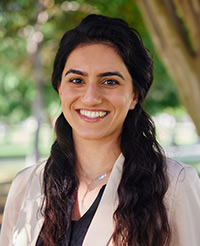
Anna Shanazari, PhD
Clinical PsychologistDr. Anna Shanazari is a licensed psychologist in California (PSY34760). She received her B.A. in Psychology from the University of California, Los Angeles (UCLA), and her Ph.D. in Clinical Psychology from Fuller Graduate School of Psychology. She completed her pre-internship year at UCLA’s Child OCD, Anxiety & Tic Disorders Program, spending the majority of her time at the Pediatric OCD Intensive Outpatient Program providing Exposure and Response Prevention (ERP) to children and adolescents and leading peer psychoeducational and mindfulness-based groups. Dr. Shanazari completed her pre-doctoral internship at Providence St. John’s Health Center’s Child and Family Development Center. There, she utilized evidence-based treatment models to provide therapy to children, adolescents, and emerging adults, as well as, provided parent training to both individuals and groups, completed comprehensive psychological assessments, and led various school-based therapy groups at local Santa Monica public schools. During her internship year, Anna also received certifications in evidence-based practices of Interpersonal Psychotherapy (IPT) and Managing and Adapting Practice (MAP). Dr. Shanazari completed her postdoctoral hours at the OCD & Anxiety Program of Southern California, where she provided outpatient and intensive outpatient treatment for OCD and related disorders, anxiety disorders, and other comorbidities including depression.
Dr. Shanazari has trained in a variety of settings including community mental health, university counseling centers, public schools, private practices, and intensive outpatient programs providing individual, family, and group therapy to children, adolescents, and adults experiencing various mental health challenges. Dr. Shanazari is passionate about working with children, adolescents, and emerging adults, with a special interest in individuals who face challenges due to OCD and anxiety disorders. Dr. Shanazari has enjoyed using creativity when providing ERP treatment, to collaboratively find new ways to challenge fears, while also maintaining great rapport and a safe and accepting environment. She has also recognized the benefits of engaging the client’s support system in treatment and enjoys collaborating with family members, especially when working with children and adolescents.

